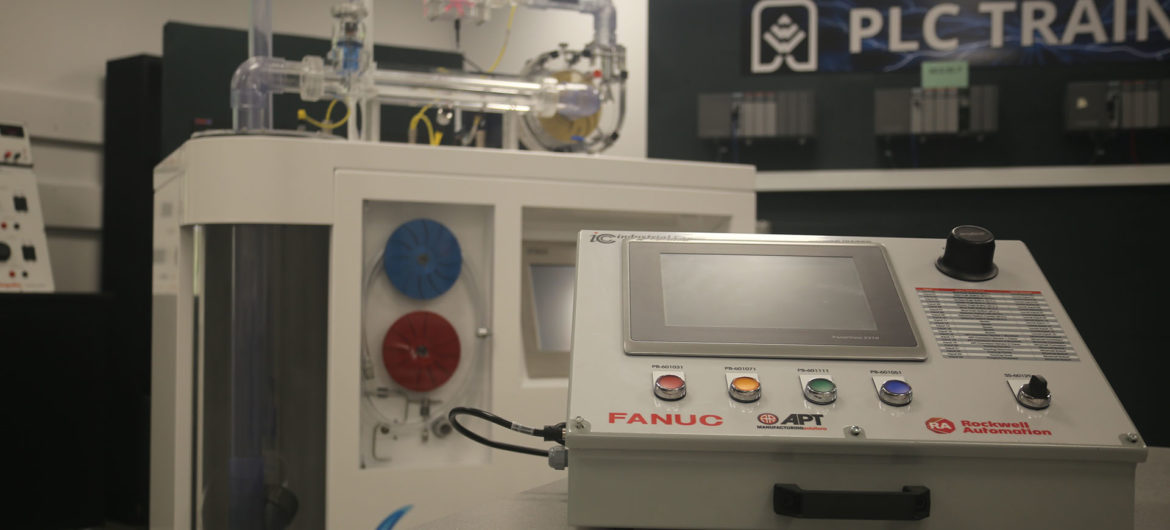“These funds make it possible to provide quality academic programs with state-of-the-art labs to meet the demands of our local workforce. They allow us to be ahead of technology and innovation in this region so we can support our industry partners’ efforts to incorporate automation and integration.”
WSCO President Dr. Vicky Wood
MARIETTA, OHIO—The Ohio Department of Higher Education Chancellor Randy Gardner announced the latest round of Regionally Aligned Priorities in Delivering Skills (RAPIDS) program funding. Washington State College of Ohio (WSCO) received $286,896. The college will use the grant to support its training efforts in advanced manufacturing and healthcare.
RAPIDS is a $7.6 million grant funded by the Ohio Department of Higher Education (ODHE) and distributed throughout the state. Nearly $1 million was allocated to the Northern Appalachian region of Ohio which is comprised of Washington State and three other community colleges.
“The RAPIDS program has been a successful way to bolster Ohio’s workforce efforts and create a pipeline of skilled workers for regional employers,” Chancellor Gardner said. “RAPIDS puts students at Washington State in a strong position to train and learn with up-to-date equipment and helps put students on a path to a successful career. This new funding will help Washington State continue to be a leader in advanced manufacturing and healthcare training, and I’m pleased that Governor DeWine and legislators continue to support this important program.”
With the funds, WSCO will sustain the efforts to address the changing workforce demands of this region. Through their collaborative work with Belmont College, Eastern Gateway Community College, and Zane State College, they are taking a forward-thinking approach to the emerging intersection of the Industrial Internet of Things (IIoT/Industry 4.0) and advanced manufacturing. In addition to investing in training equipment, they are developing an Industry 4.0 Factory Automation Regional Certification. The certificate will consist of an innovative model using shared curriculum from each of the partnering institutions with curriculum in instrumentation, programming, cybersecurity, networking, IIOT/Industry 4.0, and cloud computing.
WSCO’s Dean of Technology and Transfer George Bilokonsky, detailed that part of the grant will fund the purchase of a state-of-the-art computer numerical control (CNC) machine that will allow the college to provide in-demand training that currently isn’t offered in this region. “With this new equipment, we will be able to upskill incumbent workers. They will earn valuable, nationally recognized credentials from the National Institute of Metalworking Skills (NIMS) as well as FANUC,” Bilokonsky said. He further explained that the addition of the new equipment will allow WSCO to offer training to high school students that will make them work-ready upon graduation. They will also have the opportunity to receive credits towards graduation and earn more than 20 industrial credentials that lead to high-demand jobs. Furthermore, the college will be able to provide Mastercam and SolidWorks CAD training, as well as offer Rockwell/Allen-Bradley PLC certification as part of the college’s Advanced Manufacturing and Integration training for incumbent workers and students.
Additionally, the funds will support new equipment needed for the expansion of WSCO’s nursing programs. Their enrollment has continually grown as the local demand for nurses rises. Currently they accept approximately 120 new students annually. To accommodate the increasing numbers, the college is renovating and expanding the facilities in the Health and Sciences division. The renovations will include larger labs for general biology and anatomy/physiology which will be equipped with updated microscopes.
“We are grateful for the support from ODHE. Students and incumbent workers rely on us to provide them access to and engage them in career-specific education and skills training that will help them succeed and advance on the job,” said WSCO President Dr. Vicky Wood. “These funds make it possible to provide quality academic programs with state-of-the-art labs to meet the demands of our local workforce. They allow us to be ahead of technology and innovation in this region so we can support our industry partners’ efforts to incorporate automation and integration.”
Since 2015, Washington State has been instrumental in bringing more than $5 million in grant funds to the Northern Appalachian region and approximately $1.5 million to the College by leading regional planning and proposal development for RAPIDS funding.





